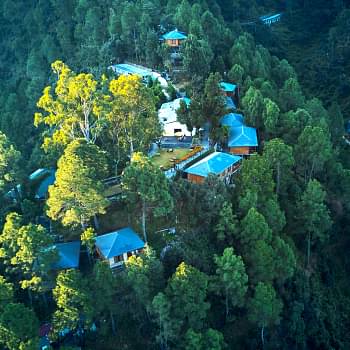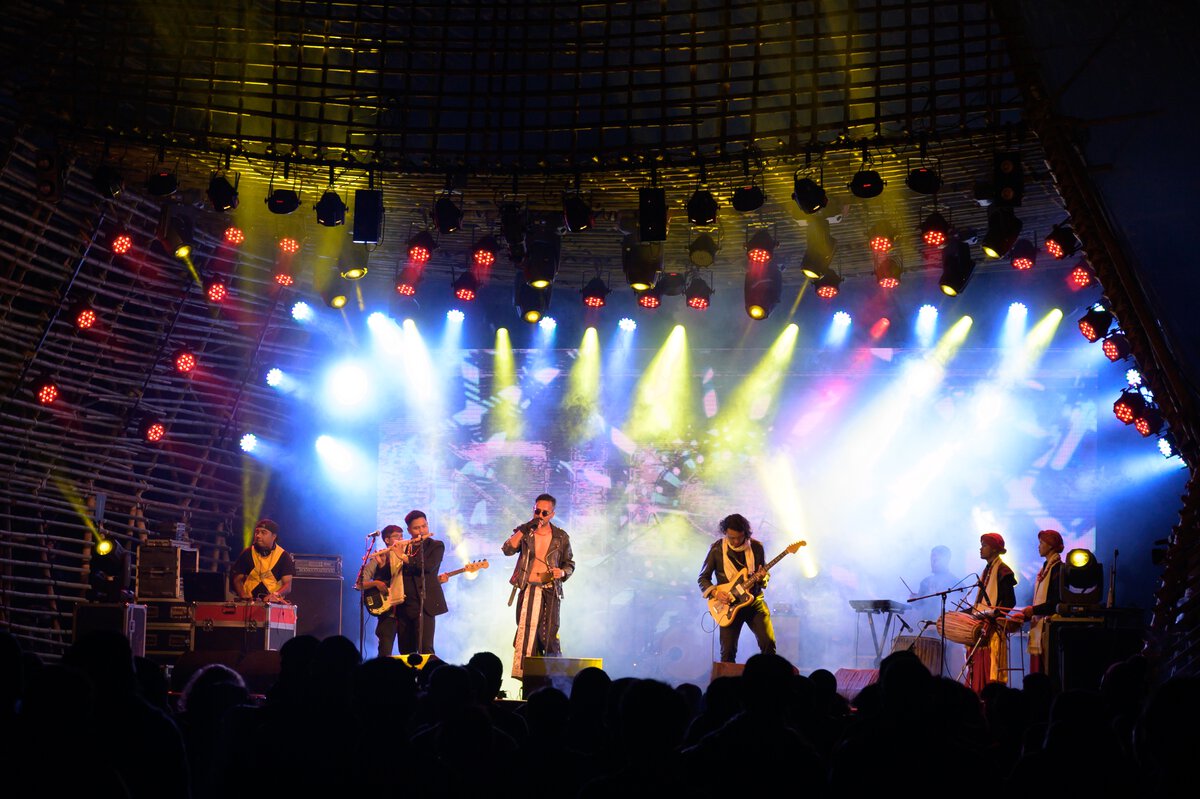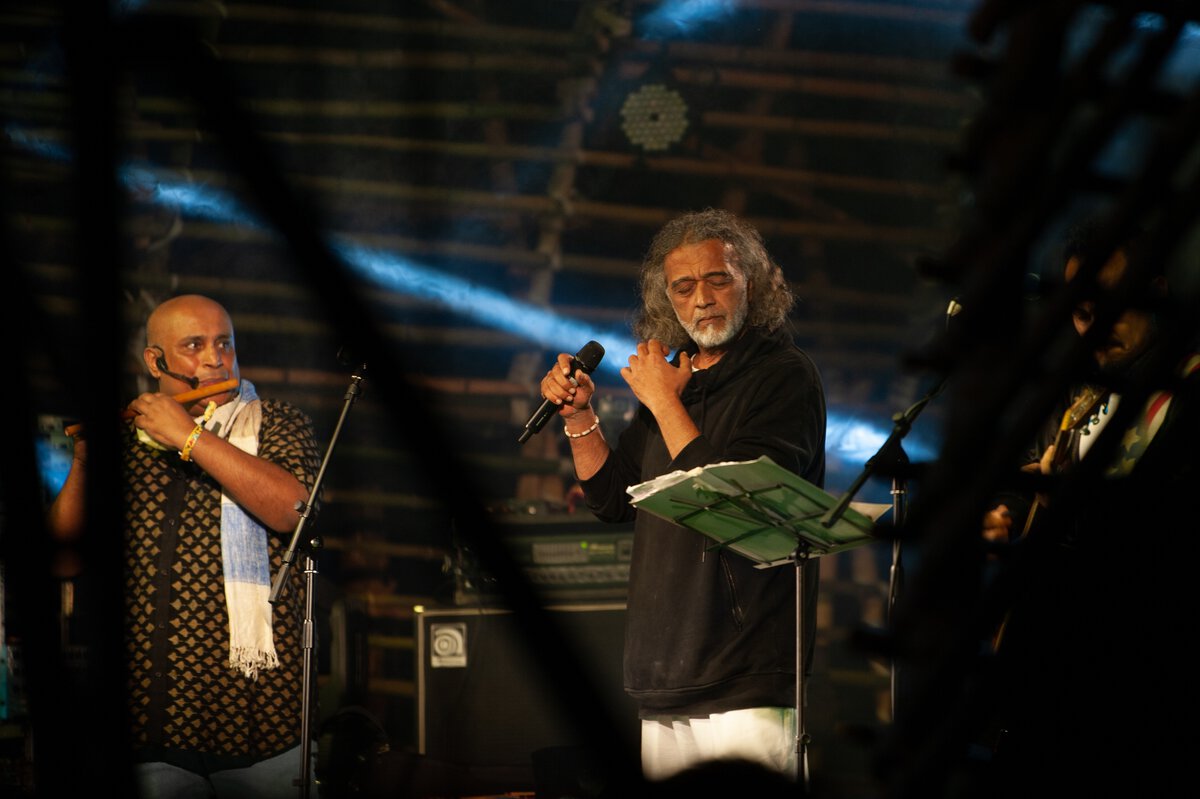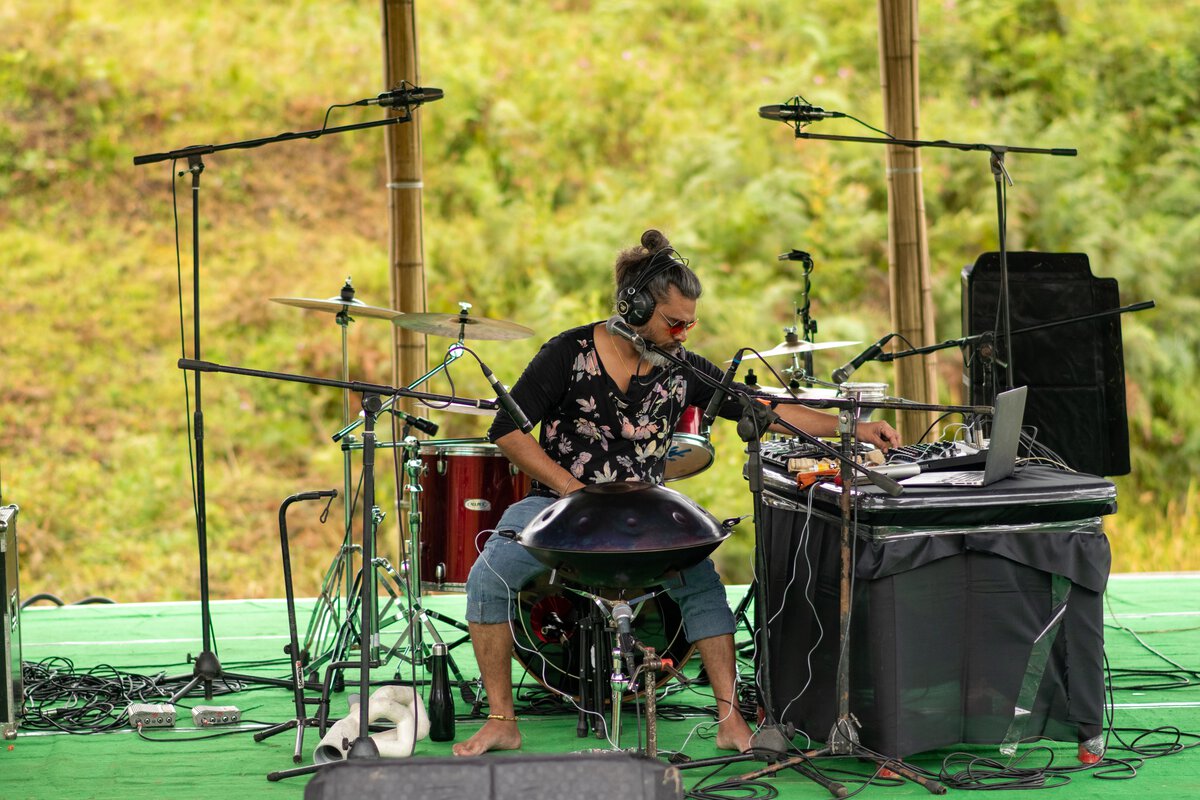September 19, 2022
Ziro Festival of Music 2025: India's Most Soulful Celebration in the Hills
CM Content Team


View all
140+
Resorts
September 19, 2022
CM Content Team
In the far northeastern corner of India, where the mountains whisper ancient stories and the clouds float low like a dream, lies a hidden gem waiting to be discovered.
Welcome to Ziro Valley, an untouched Eden nestled in the heart of Arunachal Pradesh.
Tucked away in the mesmerising folds of this region lies a valley unlike any other, Ziro Valley, a lush green paradise of misty pines, endless rice paddies, and warm tribal hospitality. It’s here that one of India’s most soul-stirring music festivals takes place every year: The Ziro Festival of Music. This isn’t your regular commercialised music event. It’s a conscious celebration, a celebration of music, sustainability, art, and community.
The Ziro Festival isn’t just about watching artists perform; it’s about becoming part of a culture that sings, dances, and lives in harmony with nature.
Launched in 2012, the Ziro Festival was born out of a desire to offer a platform to India’s burgeoning independent music scene while showcasing the raw, untouched beauty of Arunachal Pradesh. What makes Ziro stand apart is its authenticity. Held in collaboration with the local Apatani tribe, this festival doesn’t arrive with the pomp of plastic stages and commercial noise; instead, it rises from the earth, literally.
The entire infrastructure is built using locally sourced bamboo and natural materials, staying true to the eco-friendly ethos of the land. Artists perform on stages crafted by hand, surrounded by undulating fields, singing to crowds sprawled on the grass under starlit skies. There are no VIP sections, no artificial barriers, just music and nature in complete sync.
This year, the Ziro Festival of Music 2025 will be held from:
25th to 28th September 2025
Over the course of four days, thousands of music lovers will gather in Biiri Village within Ziro Valley to experience an unforgettable blend of soundscapes, cultural immersion, and scenic beauty.
Each day of the festival begins slowly, in tune with the rhythm of the land. Mornings are misty and silent, inviting attendees to explore the surrounding villages or relax by the streams. As the sun climbs higher, the valley slowly fills with music, sound checks echo across the paddy fields, guitars strum in distant corners, and rhythms begin to build.
By evening, the valley comes alive. Local and international artists take the stage to deliver performances that range from acoustic folk to tribal electronica, reggae, blues, experimental rock, and everything in between. You’ll find yourself dancing beside strangers who feel like old friends, sharing stories over local brews and homemade bamboo shoot delicacies.

At its heart, the Ziro Festival is a musical sanctuary for artists and listeners alike. It doesn’t just cater to one genre; it opens its arms to all.
In past editions, the festival has featured acts from across India and the world. From electronic producers and indie rock bands to classical vocalists and traditional tribal groups, the lineup is beautifully eclectic. One moment you might be swaying to the haunting vocals of a folk singer from Nagaland, and the next, losing yourself in the hypnotic beats of a Berlin-based DJ.
But the Ziro stage isn’t reserved just for big names. It is a launchpad for emerging talent, especially from the Northeast, a region with a vibrant but often underrepresented music scene. The festival has become a space where lesser-known artists find their audience, where musical boundaries are blurred, and where the audience isn’t just watching but participating in the collective energy.

One of the most extraordinary elements of the Ziro Festival is its deep integration with local culture. The Apatani people are not just hosts, they are co-creators.
The Apatanis are known for their indigenous farming techniques, their rich oral traditions, and their strong emphasis on sustainable living. Their lifestyle is a perfect match for the philosophy behind the festival. From constructing bamboo stages to curating food stalls that serve authentic cuisine, the community plays an integral role in every aspect of the festival.
Visitors are often invited to explore the villages, witness traditional craft-making, and even take part in tribal rituals and folk storytelling. This creates a genuine cultural exchange that goes far beyond the music. You’re not just visiting; you’re becoming part of something much older and deeper than a modern festival.

The setting of the Ziro Festival is almost too perfect to describe. Held at the edge of a vast, emerald-green paddy field framed by mountains and pine forests, the visuals alone could steal the show.
Even the food becomes a part of this immersive experience. Attendees get to savour tribal delicacies, often made from bamboo, pork, millet, local herbs, and spices. Everything is fresh, organic, and lovingly prepared. Meals aren’t rushed; they’re shared, over music, over conversation, under the stars.

One of the core values of the Ziro Festival is environmental responsibility. In a world where large-scale events often leave behind trails of trash and disruption, Ziro sets a shining example of how to celebrate responsibly.
The festival operates on a strict no-plastic policy. Stages are built using sustainable materials like bamboo and wood. Waste is carefully segregated and managed. Attendees are encouraged to bring reusable bottles, cutlery, and to participate in clean-up drives.
More than just policies, it’s a mindset. You’ll feel it in the way people behave, in the respect shown to the land, and in the mutual understanding that everyone is here not just to listen to music, but to honour the environment that makes this experience possible.
Reaching Ziro is no small task. It involves a combination of flights, trains, and long drives through winding mountain roads. But perhaps that’s what makes it even more special.
The journey becomes a pilgrimage of sorts. With every turn on the hilly road, anticipation builds. As you ascend into the mountains and the air gets cooler, you begin to feel the magic in your bones. And when you finally arrive, after hours of travel and breathtaking views, you realize: it was worth every mile.
It’s not just about the destination; it’s about the transformation that happens along the way. The people you meet, the stories you share, the quiet moments you spend staring at the stars, all of it becomes part of your Ziro story.
Still wondering if Ziro is worth the adventure? Here are a few reasons why it stands out as India’s best music festival:
Ziro Music Festival 2025 – Ticket Information
Choose from flexible ticket options to suit your schedule:
To purchase tickets, visit: www.zirofestival.com
Reaching Ziro may take effort, but the journey is part of the adventure. Tucked deep in Arunachal Pradesh, the path to this hidden gem is scenic, soulful, and worth every mile. Here’s how you can make your way to the festival:
By Air: The nearest major airport is Guwahati (Assam), well-connected to most Indian cities.
By Train: The nearest railway station is Naharlagun, around 100 km from Ziro.
By Road: From Guwahati, it’s a long yet beautiful drive of approximately 450 km.
Permits Required: Inner Line Permit (ILP): Mandatory for Indian citizens visiting Arunachal Pradesh. Can be obtained online or from designated offices in Assam or Arunachal.
Protected Area Permit (PAP): Required for foreign nationals. It must be arranged in advance through a registered tour operator.
The Ziro Festival of Music is not just another event on a calendar, it is a living, breathing celebration of art, people, and planet. It breaks down walls, between genres, between communities, between the performer and the audience. It invites you to slow down, to listen, not just to the music on the stage, but to the whispers of the wind through the pines, the laughter of locals, the crackle of the campfire, and the quiet awe that comes from being somewhere so profoundly beautiful.
If you’re seeking a musical experience that’s immersive, intentional, and unforgettable, then Ziro Festival of Music 2025 is your calling. Let the valley welcome you. Let the rhythms move you. Let Ziro be the song your soul has been waiting to hear.
Yes. Indian citizens require an Inner Line Permit (ILP), and foreign nationals need a Protected Area Permit (PAP). It’s recommended to apply online in advance or through official state offices.
Absolutely! Ziro is known for its warm, welcoming vibe and tight-knit community. Many solo travellers attend and often make lasting connections with fellow attendees.
Expect a mix of traditional tribal Sikkimese dishes made with bamboo, millet, and local herbs, along with comfort favourites like momos, thukpa, and some continental options. Vegan and vegetarian choices are also available.
Yes, the festival is family-friendly during the day. However, it’s best to consider the outdoor conditions and limited amenities if traveling with young children.
Club Mahindra Gangtok Resort in Sikkim offers a serene escape amidst the Eastern Himalayas. With its charming architecture, cozy rooms, and panoramic views of snow-capped peaks, this resort in Gangtok is perfect for travellers seeking both comfort and culture. Guests can enjoy local Sikkimese cuisine, guided nature trails, and a relaxing spa. Ideal for families and couples or explorers wanting to unwind in the lap of nature.
Club Mahindra membership unlocks access to 140+ Club Mahindra resorts worldwide, offering everything from serene beaches to scenic mountains. Enjoy hassle-free, flexible bookings through an intuitive platform designed for travellers. Members consistently share positive reviews, highlighting exceptional service, comfort, and unforgettable family experiences. It’s the perfect way to make holidays effortless and extraordinary.
Mahindra Holidays & Resorts India Ltd. (MHRIL), a part of Leisure and Hospitality sector of the Mahindra Group, offers quality family holidays primarily through vacation ownership memberships and brings to the industry values such as reliability, trust and customer satisfaction. Started in 1996, the company's flagship brand ‘Club Mahindra’, today has over 300,000 members , who can holiday at 140+ resorts in India and abroad.
We use cookies to personalise content and to provide you with an improved user experience.By Continuing to browse this site you consent to the use of cookies.Please visit our cookie policy for further details.

Welcome to ClubMahindra.com In order to provide a personalised experience for you, we use cookies to enable some website functionality. Cookies help us see which articles most interest you; allow you to easily share articles on social media channels; permit us to deliver content personalised to your interests and locations; along with many other site benefits. For more information, please review our Cookie Policy
When you visit any website, it may store or retrieve information on your browser, mostly in the form of cookies. This information might be about you, your preferences or your device and is mostly used to make the site work as you expect it to. The information does not usually directly identify you, but it can give you a more personalized web experience. Because we respect your right to privacy, you can choose not to allow some types of cookies. Click on the different category headings to find out more and change our default settings. However, blocking some types of cookies may impact your experience of the site and the services we are able to offer.
Because we respect your right to privacy, you can choose not to allow some types of cookies and you have the right to withdraw your consent by send a mail to email id [email protected]
These cookies are essential in order to enable you to move around the site and use its features, such as accessing secure areas of the site. Without these cookies, services you have asked for cannot be provided.
These cookies allow us to employ data analytics so we can measure and improve the performance of our site and provide more relevant content to you. These cookies don't collect information that identifies a visitor down to an individual level that is available to us. These cookies are not passing personally identifiable information to any external third party other than in limited cases when we engage a service provider to act on our behalf but who is then unable to use the data for their own purposes.
Performance cookies are generally third-party cookies from vendors we work with or who work on our behalf that collect information about your visit and use of the Club Mahindra website, for instance which pages you visit the most often, and if you get error messages from web pages. These cookies don't collect information that identifies a visitor. All information these cookies collect is anonymous and is only used to improve your overall experience on how the website works. Third party vendors may have access to this data and may use it to improve their overall services and offerings.
Functionality cookies allow a site to remember choices you make (such as your user name, language or the region you are in) and provide more enhanced, personal features. These cookies cannot track your browsing activity on other websites. They don't gather any information about you that could be used for advertising or remembering where you've been on the Internet outside our site.
Third-party advertising and social media cookies are used to (1) deliver advertisements more relevant to you and your interests; (2) limit the number of times you see an advertisement; (3) help measure the effectiveness of the advertising campaign; and (4) understand people's behaviour after they view an advertisement. They are usually placed on behalf of advertising networks with the site operator's permission. They remember that you have visited a site and quite often they will be linked to site functionality provided by the other organization. This may impact the content and messages you see on other websites you visit. If you do not allow these cookies you may not be able to use or see certain these sharing tools content on our website.